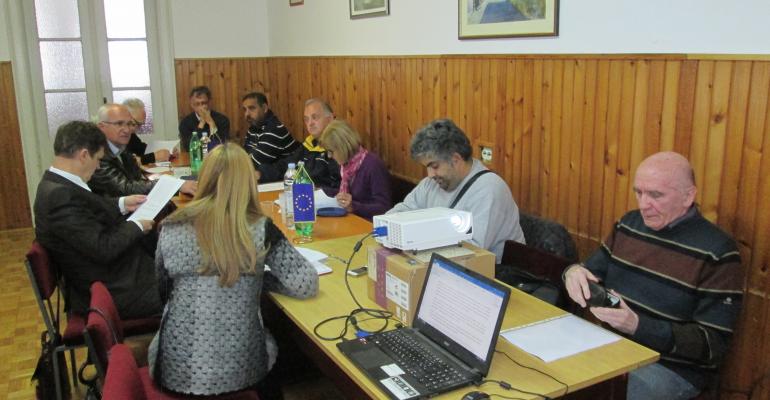The third meeting for the analysis of the Constitutional Act on the Rights of National Minorities (CARNM)
Published: 2017/21/04 10:25
The third meeting for CARNM analysis was held in the premises of the Association of Blind Persons in Slavonski Brod on 20 April 2017.
The meeting was attended by elected representatives of the Roma, Serbian and Albanian national minorities from Brod-Posavina County and the city of Slavonski Brod and by the representatives of Roma CSOs.
Professor Lauc presented the final version of the CARNM analysis which is based on the collected information and statistical data related to the position of national minorities.
Participants commented that data collected in the last census is not the most competent and also noted that some data is easier to collect in rural areas than in the cities. They also mentioned that relevant statistics exist only for Roma population.
The analysis is divided by topics relating to education, employment, health care, social welfare, status issues, housing and spatial planning, inclusion in cultural and social life and the collection of statistics.
Elected representatives commented all thematic areas speaking about everyday life experiences of the national minorities members.
Participants of the meeting concluded that the analysis shows the actual situation and position of national minorities in Brod-Posavina County and stressed the importance of stronger joint lobbying of elected representatives and members of Councils of national minorities in order to improve the lives of their community members..
The third meeting for the CARNM analysis was organized by ILC in collaboration with project partners - HILS from Osijek, Brod – Posavina County and the Network of Roma CSOs in Croatia through the "Legal inclusion and sustainable integration of Roma in Croatia" project which is financed by the European Union program IPA 2012 "Strengthening the capacity of civil society organizations to ensure the effective implementation of EU standards in the realization of human rights" and co – financed by the Office for Cooperation with NGOs.

